Hundreds who’ve been sick with the coronavirus in St. Clair County have been categorized as recovered.
But some of those survivors say they’re still feeling the virus' impact — long after they’ve been cleared of symptoms, discharged from local hospitals or tested negative for COVID-19.
Dr. Sridhar Reddy, chief medical officer at Lake Huron Medical Center, which has treated local COVID patients as well as others transferred from other areas, said there is a difference in the public health and medical definitions of recovered.
“I would not (always) consider them recovered medically. Some of them are not recovered and have symptoms that are ongoing,” he said. “... Obviously, we think the virus has been dead and gone, but there are side effects.”
Patients may come out of treatment "quite debilitated," Reddy said, and it can take several weeks for their muscle mass to come back for daily task as simple as eating or walking.
Reddy said they may also suffer from anxiety and other psychiatric issues similar to post-traumatic stress after extended periods of isolation from loved ones. The trauma, he said, can remain once they get home.
“It kind of gets left into this void, if you will, the social part. As medical professionals, we hardly ever intervene,” he said. “And that’s the part that I think is very trying for these people. (They’re) not on oxygen, but they’re scared to have their grandkids over. Where from a medical perspective, they may not need to (worry). … That is the part that is taking a toll on society in general.”
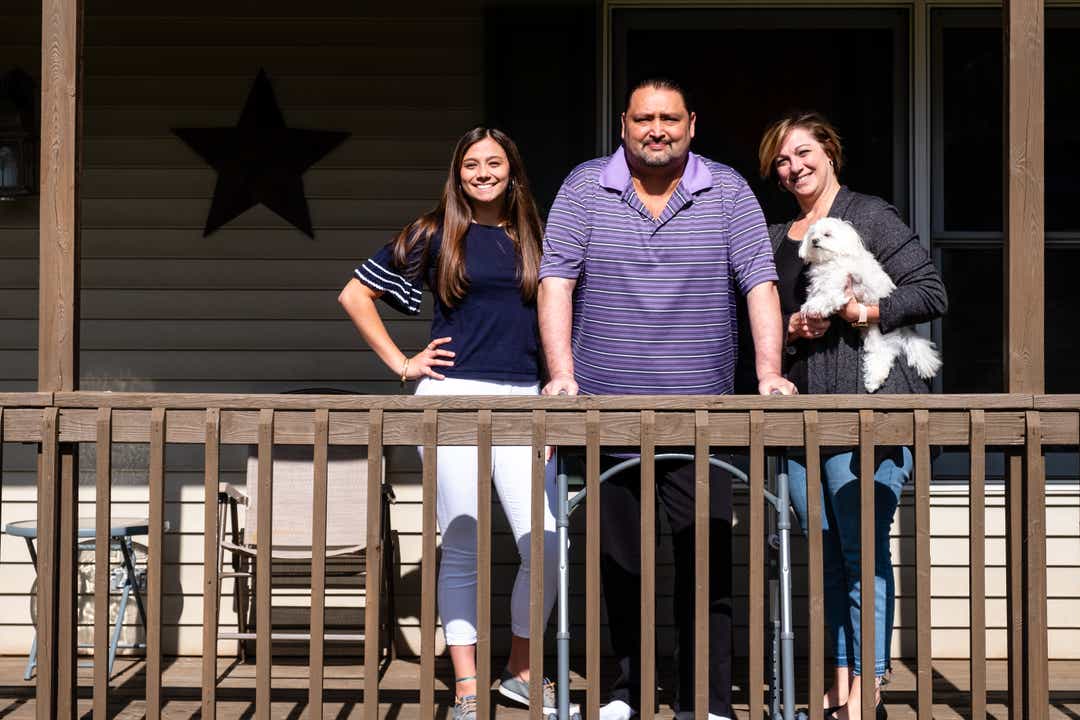
'I’m changed forever'
The worst part of recovering from the coronavirus is the weakness, Edward Plucinski said.
He lost all his strength and stamina. He can't walk more than 100 feet in his Lynn Township home without elevating his heart rate, being short of breath and having to sit down.
However, in some ways, he said having the virus was worse emotionally, being hospitalized and isolated.
“It was horrible. I was sad, depressed, every day,” he said.
Edward Plucinski, his wife Lisa and their daughter Megan, all contracted the virus in March.
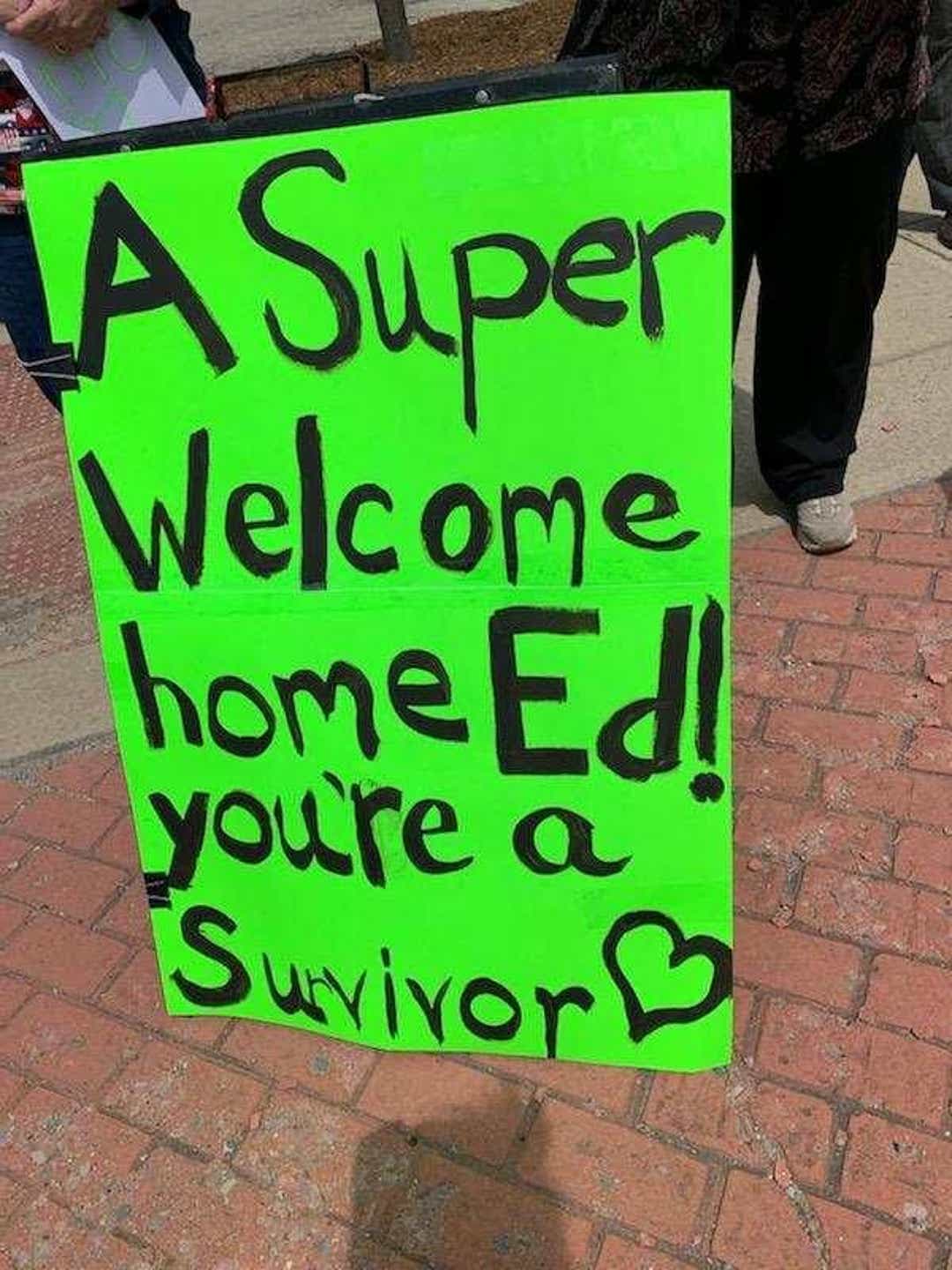
Lisa, a registered nurse, said she and her daughter were “very, very lucky” and had mild symptoms.
Her husband, on the other hand, declined rapidly. He couldn’t get out of bed. He wouldn’t eat or drink and everything made him sick.
The family tried to take Edward to the emergency room twice but were turned. The third time he was taken in an ambulance after passing out in their home.
Edward was admitted to Henry Ford Macomb Hospital on April 7 and would not leave for a month. He was moved to the intensive care unit around April 10 and the day after that was put on a ventilator, his wife said.
In the hospital, Edward thought he would die and never get to say goodbye to his family. He wanted to give up, he said.
But a nurse in the hospital helped him use FaceTime to interact with his family. Once he heard their voices, he knew he had to keep fighting.
“Nothing was going to take me, that’s what I decided,” he said.
Edward came home on May 7, but his struggles with the coronavirus weren’t over.

He has in-home nurse visits and physical and occupational therapist meetings. He has to follow up with cardiology, rheumatology, rehabilitation and nephrology specialists along with his family doctor.
He has nerve damage in his right arm and a “COVID rash” the family isn't sure how to treat. They think he has nodules in his throat from having tubes in it that will probably have to be surgically removed, Lisa said.
But that doesn’t matter. Her husband is still alive and that’s what’s important.
"He was a pretty sick man and we feel like we've had a miracle,” she said.
Edward Plucinski said he knows people want to go back to normal life, but he wants them to know the virus changes you.
“I’m changed forever.”
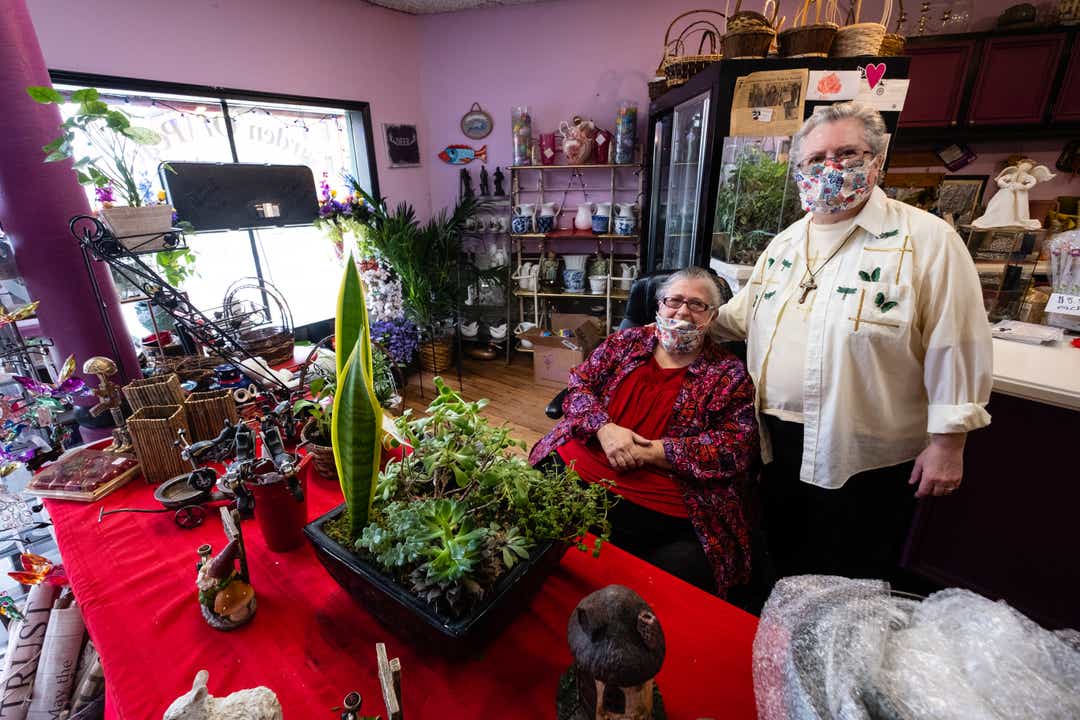
'We both survived'
Not even Hurricane Michael could stop Sister Carmella Chetcuti from traveling across the United States . But this year, there was something that prevented her from repeating the trip.
“God didn't want me to do the second trip yet,” she said. Instead, she was fighting COVID-19.
Chetcuti started showing symptoms on March 28. It started with diarrhea and a low-grade fever. Several days later, when her temperature was over 101 degrees, she tried to go to the emergency room.
At first, Ascension St. John Hospital turned her away. But as her symptoms worsened, she was admitted to Ascension River District Hospital, where she stayed in the ICU for 16 days.
“When I got there, I was put in a wheelchair," she said. "All I remember is putting my ID on the counter, and I don’t remember a single thing for 12 days.”
Chetcuti was immediately put on a ventilator and diagnosed with acute respiratory failure and severe pneumonia. Of the five people in the hospital who were put on a ventilator, Chetcuti was told by staff she was the only one who survived.
While Chetcuti was in the hospital recovering, her sister, Marcella Adams, served as her point of contact with the hospital. One night hospital staff called her to ask what they should do if there was an emergency, like if her sister's heart stopped.
“I’m sure I sounded pretty panicked," Adams said. "I said you do whatever you need to do to keep her alive, of course. It was the scariest phone call I’ve gotten in my entire life.”
Both sisters laughed, though, recalling how when Chetcuti recovered enough to wake up, her first words were, "I want pizza."
“I’m a Catholic sister, you’d think that I’d be saying the name of Jesus,” Chetcuti said.
On April 22, Chetcuti was transferred to a MediLodge for rehabilitation. As she was pushed through the halls on a gurney, the staff gathered to cheer her on. “Ain’t No Mountain High Enough” was played through the hospital’s speaker system.
This was the only time she cried during the entire ordeal.

While Chetcuti was in the hospital, her sister was recovering from the virus at home. Adams' symptoms were milder, but she, too, worried she should go to the hospital.
“I was asking my husband if I was going to make it until our anniversary ... if I could get past our anniversary I would be OK,” she said.
Before Chetcuti was released from the MediLodge on May 7, she was tested negative two days in a row for COVID-19.
Chetcuti still sees an in-home nurse and is actively receiving physical therapy to regain strength in her arms and legs.
The sisters, who live in Marine City, own and operate Garden of Peace Florist and Gifts. Adams said she wasn't sure the store would survive because of the pandemic and the limited supply chain caused by stay-at-home orders.
But after an uplifting and encouraging show of support from the community on Mother’s Day, she believes they can.
“We both survived,” Adams said. “This Mother’s Day was the rebirth of being able to turn this around, and whatever is out there and whatever’s heading our way, somehow or other, we can be here.”
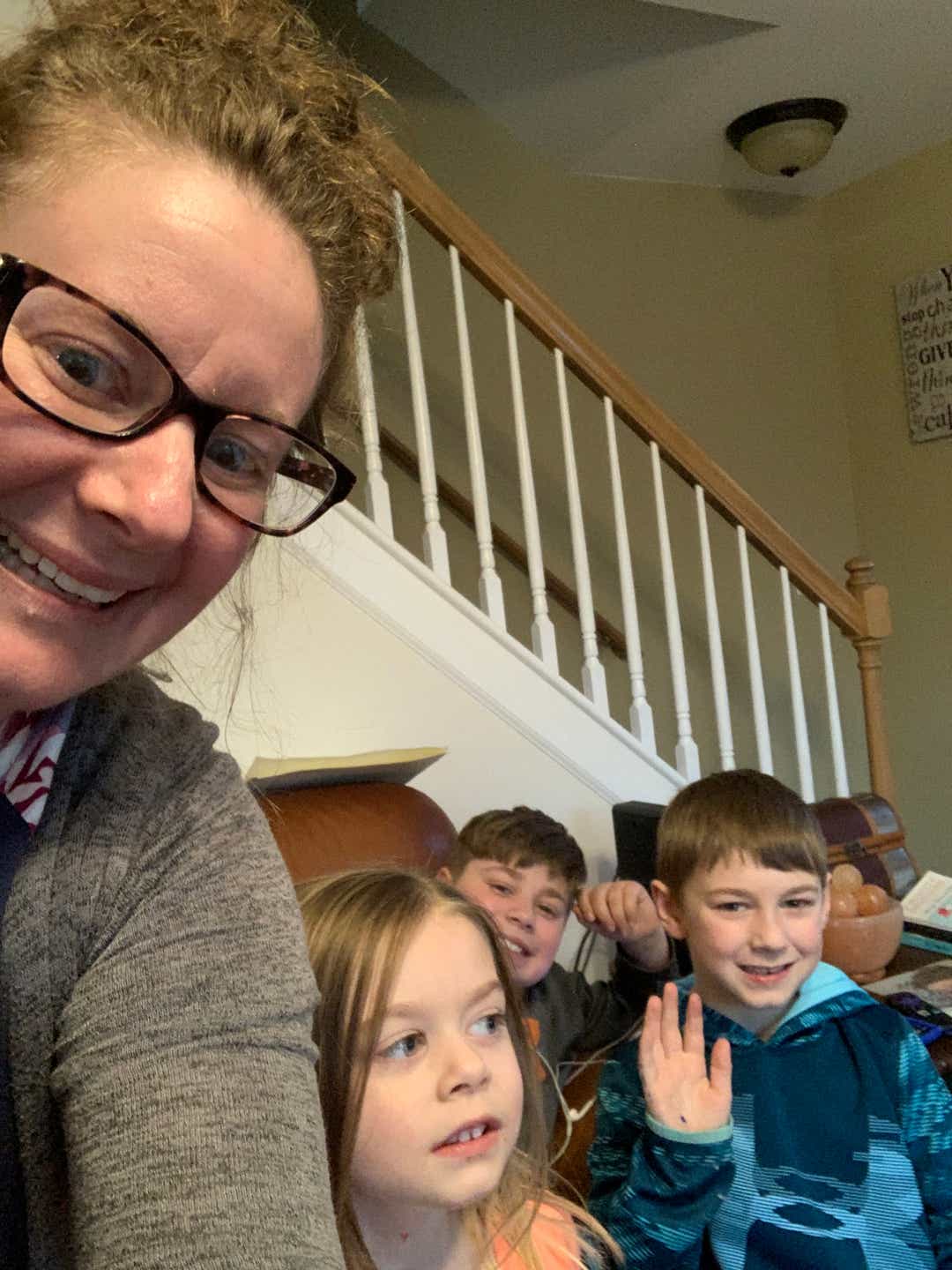
'You just don’t have any answers'
It’s been over a month since Corey McCulloch returned to her St. Clair home from McLaren Macomb, where she was recovering from COVID-19.
But the East China Schools special education teacher said the hardest part of her ongoing recovery has been the lack of answers.
“You just don’t have any answers as to how long you’re going to feel like that or if you’re going to get it again,” she said. “That’s the scary part.”
McCulloch is still experiencing shortness of breath and fatigue, but the double pneumonia caused by the virus is “pretty much gone,” she said.
She still has to go to the hospital for X-rays to check her lungs, but she isn’t seeing any in-home nurses or experiencing other symptoms.
A strong support system not only helped McCulloch keep from feeling lonely while she was in the hospital, but it’s also helped during her recovery. McCulloch and her family still receive cards and well-wishes in the mail, and when she first returned home they were given dinners and gift cards, she said.
As the stay-home order is lifted, McCulloch said the more people follow social distancing guidelines and continue to take precautions to quell the spread of the virus, the better it will be for everyone.
“Always be cautious,” she said. “Be cautious that it’s still out there.”
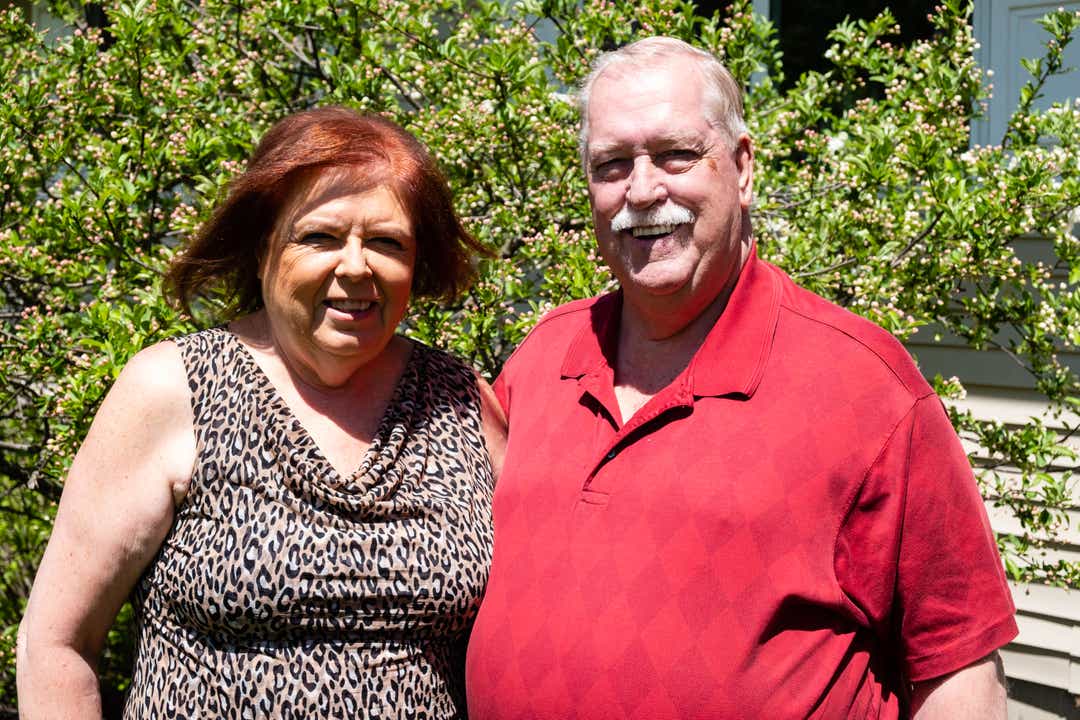
One man's goal to get 'back to normal’
When Dan Kutchey talks about his experience with the coronavirus, his wife Carole briefly interjects to correct him on the dates. There’s a lot to remember.
Like the date of the fish fry in early March at the Sons of AmVets Post 93 in Armada where he said he got sick, when he thought he had pneumonia and called his doctor two weeks later, and the days he was admitted to and discharged from Lake Huron Medical Center.
But in an interview last Monday, Kutchey corrected Carole on one date in particular.
It’d been almost three weeks since he last used the oxygen the hospital sent home with him. Now, he admits he’s recovering well — better than many — and he said he considers himself lucky his bout with the virus wasn’t worse.
Kutchey, 74, of Capac, was in the hospital less than than two weeks but spent four days in the ICU with a high fever and a cough. He recalled experiencing few symptoms beyond his shortness of breath since.
Reddy told him the virus had damaged the lining of his lungs, Kutchey said, and maybe his heart — he wasn’t sure.
“I’ve been to the heart doctor since, and that seems pretty good,” the retiree said. “I had a double bypass last July. That’s why it scared everybody when I came down with corona. My age and diabetes.”
He added, with a laugh, “God’s got a plan.”
Kutchey spent early April using the oxygen. But he said he had a goal. Michigan was inching toward reopening, and his golf league was starting up. “I wanted to make sure I could go,” he said.

Kutchey said he slowly weaned himself off the oxygen. When he put it down for the final time, he said his bigger goal was getting “back to normal.”
“I’m still weaker than I was beforehand. I realize that,” Kutchey said. “But I’m starting. I’ve been trying to ride a stationary bike for an hour a day to get my strength and endurance back up, so I can do things.”
That means yard work and cutting the grass and things to help his wife. “She doesn’t think I help enough,” he joked, “but that’s beside the point.”
Kutchey said they’ve “gone a few places” like the grocery store, taking care to wear masks, keeping their distance, and wiping things down.
In a way, though, he said things ended up where they started.
“We went to the AmVets. They had a shrimp dinner, you know takeout,” he said. “They had picnic tables out behind. There were six of us there spread around. It felt good to be around other people for a while. Almost back to normal.”
Contact Jackie Smith at (810) 989-6270 or jssmith@gannett.com. Follow her on Twitter @Jackie20Smith. Contact Brian Wells at (810) 989-6269 or bwells@gannett.com. Follow him on Twitter and Instagram @bmwellsphoto. Contact Bryce Airgood at (810) 989-6202 or bairgood@gannett.com. Follow her on Twitter @bairgood123.
"story" - Google News
May 24, 2020 at 08:18PM
https://ift.tt/2TzrI9y
Dealing with the side effects: Coronavirus survivors share their stories and roads to recovery - The Times Herald
"story" - Google News
https://ift.tt/2YrOfIK
https://ift.tt/2xwebYA
Bagikan Berita Ini














0 Response to "Dealing with the side effects: Coronavirus survivors share their stories and roads to recovery - The Times Herald"
Post a Comment